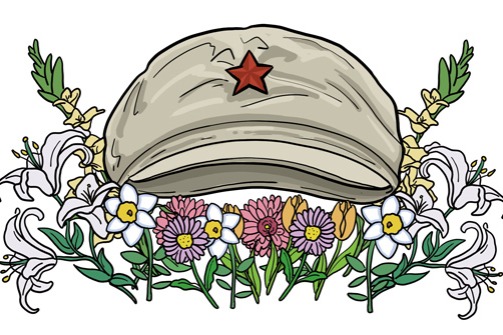US daydreaming of extending NATO into Asia-Pacific


US President Joe Biden seems to believe NATO has succeeded in "containing" Russia, and the formula could be transplanted to the Asia-Pacific region to check China's rise. But whether NATO has succeeded in containing Russia remains questionable, and it is even more doubtful whether the same model could be applied to the Asia-Pacific to contain China.
The United States' efforts to expand NATO into the Asia-Pacific would prove futile for the following reasons.
First, the Pacific and South Asian regions are two different geographical and historical formations. As for South Asia, it is overwhelmed by religious conflicts, namely between Islamism and radical Hindu nationalism. Since gaining independence from Great Britain, Pakistan and India have fought three wars, not counting the many skirmishes and the almost three-month controlled war in 1999, simply because they cannot accept each other.
The irreconcilable differences between the Hindus and Muslims led to the partition of British-ruled India into two dominions in 1947: India and Pakistan. India has been tied up with the subcontinent's geopolitics and therefore could not extend its influence beyond the South Asian region. Also, the confrontation between Pakistan and India has become a diplomatic handicap for the US, for it cannot bring the two countries together to serve Washington's strategic interest.
Besides, given New Delhi's decades-long friendly relations with Moscow, it cannot be expected to side with Washington against Moscow.
Second, in terms of diplomacy, the US' goal of extending NATO into the "Indo-Pacific" region is a Cold War strategy aimed at containing China. This strategy advocates the use of political machinations and geopolitical stratagems at the expense of the economy. But such a strategy goes against the Association of Southeast Asian Nations' goal of strengthening the regional economy and country-to-country relations.
Since the establishment of ASEAN in 1967, its member states have focused on boosting the regional economy, and vowed to stay politically neutral and avoid joining military alliances. It is due to these goals and values that ASEAN and China have been able to establish very strong economic relations. In fact, China is ASEAN's largest trade partner, and vice versa.
No wonder the ASEAN member states, invited by Biden to a joint meeting in Washington in May, said they don't want a NATO-like organization in the Asia-Pacific. Also, their joint statement indicated they are unwilling to join any NATO-like bloc in the "Indo-Pacific", and without ASEAN member states, no "Indo-Pacific NATO" is possible.
Third, the US has been hyping up the "China threat" theory to prompt countries to side with Washington against Beijing. But the fact is, China does not pose a threat to any country, including the US. China has never invaded any country; instead, it has been invaded by Japan, some European powers and the US in the past. In fact, even after the founding of the People's Republic in 1949, China had to guard against foreign powers, especially the US and its allies, which started and fought the Korean and Vietnam wars.
The US is using the same "containment policy" to expand NATO into, or forge a NATO-like alliance in, the Asia-Pacific. In the South China Sea, it is using so-called freedom of navigation as an excuse to dispatch warships on reconnaissance in China's waters, challenging China's sovereignty over some islands at a time when China and some ASEAN members such as Vietnam and the Philippines are trying to resolve their disputes through talks and are close to finalizing the Code of Conduct in the South China Sea.
Although it is difficult to resolve all territorial disputes through talks, the disputing countries are still working to do so and, if external interference stops, may at least reach a consensus on not intensifying the disputes.
Apart from the South China Sea issue, the US has also been using the Taiwan question to target China, when the fact is that even the US acknowledges that there is only one China and Taiwan is an inalienable part of China. This makes the Taiwan question an internal matter of China which brooks no external interference.
Therefore, the US should stop using such excuses to smear China and extend NATO into the Asia-Pacific in order to check China's rise.
The author is the dean of Taima Journalism and Information Academy, Malaysia.
The views don't necessarily reflect those of China Daily.
If you have a specific expertise, or would like to share your thought about our stories, then send us your writings at opinion@chinadaily.com.cn, and comment@chinadaily.com.cn.


































